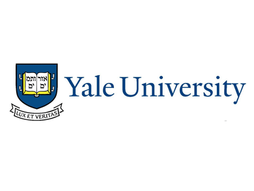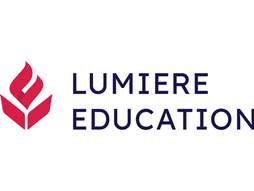Northeastern Young Scholars Program (YSP) - Should You Apply?
The world of STEM is challenging when it comes to addressing and determining which field of research to enter. Many high school students may feel unsure of what path to take at the college level as they decide on their majors toward the end of their undergraduate career. One way to aid in this challenging process is to have early exposure to STEM through a research immersion program, which helps students build research and networking skills.
The Northeastern Young Scholars Program (YSP) is a program based out of Northeastern University that helps guide students in career exploration.
This article will examine if this program aligns with your needs, discussing the advantages and disadvantages of the entire experience. Continue reading to decide if this is the right fit for you!
What is the Young Scholars Program (YSP)?
The Young Scholars Program (YSP) offers high school students in Massachusetts a unique chance to engage in hands-on research before graduation. This program, open to students who have completed their junior year, allows participants to work in research labs at Northeastern University, where noteworthy faculty such as Sara Hashmi, Shelley Lin, and many more are based.
Here, professors will guide students in diverse projects ranging from agent-based modeling to battery chemistry optimization. The curriculum includes seminars on engineering disciplines, career counseling, and corporate and government engineering site visits.
The program aims to blend practical experience with academic learning, allowing students to taste the college STEM life at Northeastern.
Who is eligible?
This opportunity is open to students from various educational backgrounds (public, private, homeschooling, etc.).
Applicants must be permanent residents of Massachusetts, residing and attending school there throughout the year. Priority is given to students with limited access to similar programs near Northeastern University.
Only current juniors expecting to enter 12th grade in the subsequent fall are eligible.
The selection process aims for a balanced representation of genders and diverse demographics. To comply with government grant regulations, applicants must be US Citizens or Permanent Residents. Except for documented emergencies, absences are not permissible.
Application Timeline
Although the 2023 applications have already closed, here is an example of how the program schedule would run for the current year's applicants.
Program Schedule for 2023
Duration: From Monday, June 26 to Thursday, August 3.
Application Period: Applications for 2023 are no longer being accepted. The next round of applications will commence in January 2024 for the following summer.
Application Deadline: Although applications are now closed, we will still be receiving recommendation letters until March 31st.
Announcement of Results: Expected to be posted by April 2023.
Program Timings: The program will run from 8:30 am to 4:30 pm on Mondays through Thursdays.
Which research topics have been covered before?
Every summer, the specific subjects offered are contingent on which faculty are scheduled to teach. While these subject areas might undergo modifications, as of January 2023, here are few of the topics that you can expect to learn more about as a participant:
Bioengineering: Investigating Cardiopulmonary Dysfunction after Prolonged Exposure to Smoke from Wildland Fires
Bioengineering/Mechanical Engineering: Evaluating Forces Involved in Human Gait
Bioengineering/Mechanical Engineering: Biomechanical Evaluation of the Tricuspid Valve
Electrical/Computer Engineering: Studying Visual Representations of Motor Function in Infants as Potential Early Indicators of Autism
Mechanical and Industrial Engineering: Application of Analytics in Healthcare
Some examples of 2023 scholars' projects include
Ethan Andersson, a student in 2023, is working on "Circuit as a Puzzle Game" under the guidance of Aatmesh Shrivastava.
Mateo Ashton Jaramillo, also a student in 2023, is focusing on "Healthcare Analytics" with the mentorship of Noor E. Alam.
Maximilian Bean-Tierney, a 2023 student, is engaged in "Gait Force Assessment and Analysis" with Sandra Shefelbine.
You can read more about alumni of the program and their former projects on the Alumni page of the website.
Pros
Gain hands-on research experience: The program offers high school students a unique opportunity to gain practical research experience in real university laboratories, providing valuable insights into potential future career paths in science and engineering.
You will engage in career exploration and counseling: Participants can attend seminars led by engineering professors and graduate students, exposing them to various engineering disciplines and cutting-edge topics and helping them make informed career choices. The program guides engineering education and career options, offering students valuable insights into the academic and professional pathways they can pursue.
You will participate in field trips and out-of-lab engagement: Field trips to corporate and government sites allow students to witness engineers in action, providing a real-world perspective on engineering applications and potential career environments.
You will have access to traditional college life: Young Scholars gain exposure to college life and access to university facilities, fostering a sense of familiarity and comfort within a higher education environment.
Cons
There is limited eligibility: The program is limited to Massachusetts residents entering their senior year of high school. It may exclude students from other regions who could benefit from such an opportunity.
It is a competitive selection: Since priority is given to students with low access to similar programs, competition for a spot in the program can be intense, potentially limiting the opportunities for some eligible students.
A US Citizenship or permanent residency requirement is preferred: The program's requirement for students to be US Citizens or Permanent Residents may exclude international students or those with different immigration statuses who might otherwise be interested.
There can be uncertainty in topics of research: The program's reliance on hosting faculty for topics means that the specific subjects offered may change from year to year, potentially limiting the predictability and relevance of the research experiences for participants
Final Thoughts on Northeastern’s YSP
The Northeastern Young Scholars Program (YSP) offers students a chance to explore STEM through hands-on research experiences at Northeastern University. The program provides valuable exposure for students who plan to or have an interest in pursuing the STEM field. This immersive program offers a glimpse into college life and provides valuable career guidance. However, its restricted eligibility and competitive selection process might limit access for some interested students.
Despite these limitations, YSP remains a valuable stepping stone for aspiring scientists and engineers to jumpstart their academic and professional journeys in STEM. Depending on where you are in your academic career and your location, the YSP program can be a great opportunity to pursue your future college goals. You can find additional programs in the Boston area on the Additional Summer Opportunities page.
If you're looking for a real-world internship that can help boost your resume while applying to college, we recommend Ladder Internships!
Ladder Internships is a selective program equipping students with virtual internship experiences at startups and nonprofits around the world!
The startups range across a variety of industries, and each student can select which field they would most love to deep dive into. This is also a great opportunity for students to explore areas they think they might be interested in, and better understand professional career opportunities in those areas.
The startups are based all across the world, with the majority being in the United States, Asia and then Europe and the UK.
The fields include technology, machine learning and AI, finance, environmental science and sustainability, business and marketing, healthcare and medicine, media and journalism and more.
You can explore all the options here on their application form. As part of their internship, each student will work on a real-world project that is of genuine need to the startup they are working with, and present their work at the end of their internship. In addition to working closely with their manager from the startup, each intern will also work with a Ladder Coach throughout their internship.
Additionally, you can also work on independent research in AI, through Veritas AI's Fellowship Program!
Veritas AI focuses on providing high school students who are passionate about the field of AI a suitable environment to explore their interests. The programs include collaborative learning, project development, and 1-on-1 mentorship.
The AI Fellowship program will have students pursue their own independent AI research project. Students work on their own individual research projects over a period of 12-15 weeks and can opt to combine AI with any other field of interest. In the past, students have worked on research papers in the field of AI & medicine, AI & finance, AI & environmental science, AI & education, and more! You can find examples of previous projects here.
If you are interested in doing university-level research in STEM, then you could also consider applying to the Lumiere Research Scholar Program, a selective online high school program for students that I founded with researchers at Harvard and Oxford. Last year, we had over 4000 students apply for 500 spots in the program! You can find the application form here.
Stephen is one of the founders of Lumiere and a Harvard College graduate. He founded Lumiere as a Ph.D. student at Harvard Business School. Lumiere is a selective research program where students work 1-1 with a research mentor to develop an independent research paper.
Image Source: Northeastern University's logo








